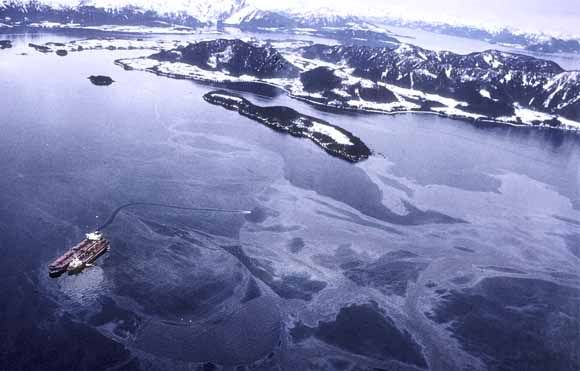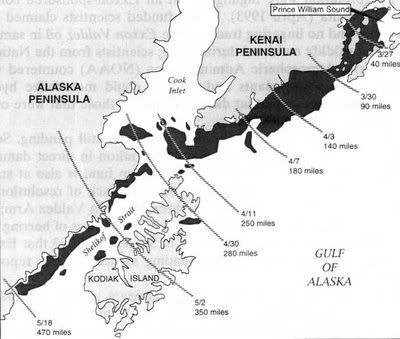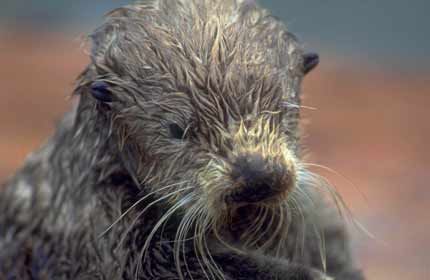(11 am. – promoted by ek hornbeck)
Don’t worry — Oil Spills? — We got it covered!

Covered with what? … maybe should be the next question.
Granted America needs the energy … but what sort of safety measures are in place?
When Murphy’s Law kicks in again — as it always does — will America’s Energy Corporations be ready, to mitigate the fallout?

It’s taken nearly all of the two intervening decades to sort out the legal liability for the Exxon Valdez disaster. Exxon has paid out over $1 billion in legal damages for the spill, and twice that much has been spent by private and government sources to fund Alaskan clean-up and recovery efforts.
[…]
Oils spills, alarmingly, still occur. The 2007 Cosco Busan spill in San Francisco Bay, though far smaller in scale than the Exxon Valdez disaster, had its origins in pretty much the same type of human judgment errors and substance abuse that caused the latter spill. The plain fact is that transporting crude oil and petroleum products by sea remains a very risky business.
[…]
As dramatic a calamity as the Exxon Valdez spill was, it probably no longer represents the most ominous, current threat to our ocean environment. That dubious distinction probably belongs to climate change and its myriad ecological consequences. Ocean acidification, in particular, is a major cause for alarm. And, sadly, unlike even mammoth oil spills such as the 1989 Exxon Valdez disaster, no amount of money, clean-up crews, environmental lawyers or political will is likely to address satisfactorily the looming threat climate change presents for our ocean environment.
Exxon Valdez: 20 Years Later – Lessons Learned
Richard Frank — March 24, 2009
Oil Spills still occur — so the rapid response to such Spills — still needs to occur as well.
That Response Readiness needs to be massive — since the areas of potential damage areas are So Massive, as experience as shown …

… and since the Damage can take So Long to clear up, and for the environment to be restored — EVEN IF America NEEDS the Oil.
20 Years After the Exxon Valdez Disaster (pdf)
WorldWildLife.org
Little Has Changed in How We Respond to Oil Spills in the Arctic
Were it to happen again today, a spill the size of the 1989 Exxon Valdez disaster would likely prove equally as devastating.
[…]“One of the most stunning revelations of Trustee Council-funded monitoring over the last ten years is that Exxon Valdez oil persists in the environment and in places, is nearly as toxic as it was the first few weeks after the spill.”
Source: www.evostc.state.ak.us/facts/lingeringoil.cfm
[…]
A 2006 report by the Exxon Valdez Oil Spill Trustee Council, which tracks the status of fish and wildlife and other resources affected by the spill, found numerous species still not fully recovered, as well as lingering negative impacts upon commercial fishing, subsistence cultures, and recreation and tourism.
[…]
Improvements in Safety and Prevention Since the Spill
As a direct result of the Exxon Valdez spill, the U.S. Congress enacted the Oil Pollution Act (OPA) of 1990, which included numerous provisions designed to improve our ability to prevent and respond to oil spills in U.S. waters. OPA included provisions that:
— Created an Oil Spill Liability Trust Fund, to compensate victims of oil spills; provide quick, efficient cleanup; and minimize damage to fisheries, wildlife and other natural resources. The fund serves to pay for containment and oil spill removal activities and prevent or mitigate substantial threats of oil discharge among its many functions.
— Required owners of oil tankers and localities where oil is extracted, stored or transported to develop detailed contingency spill response plans.
— Required the phase-in by 2015 of double hulls for new and existing tankers traveling in U.S. waters, a precaution some estimate could have reduced the Valdez spill by half, had it been in place at the time. The International Maritime Organization followed suit by adopting a double-hull requirement, through the MARPOL convention, that was agreed to by all member states.
— Required stockpiling of chemical dispersants and equipment for cleaning or containing spills to ensure adequate resources would be on hand to respond to emergencies.
[…]
Improvements in technology have also helped to reduce the number of spills from oil platforms, by moving oil and gas handling from the surface to the ocean floor. However, it remains unclear how the noise created by this new technology may be affecting fish and wildlife, as studies have not yet been conducted to determine its environmental impacts.
I wouldn’t be so worried about the Liability Trust Funds to provide “provide quick, efficient cleanup” in the event of another Massive Oil Spill — If it weren’t for Multi-National Oil Corporations — being the “weak link” in these Contingency Plans.
You see, their Track Record, IS NOT all that CLEAN, with regards to civic Responsibility …
A jury ruled that Exxon had punitive damages to pay the local communities in Alaska;
BUT after working the Appeals courts the penalty went from
$5.0 Billion … to $2.5 Billion … to $0.5 Billion
— and they still haven’t been Paid, by Exxon!
20 Years and Nothing?!? [as of March 2009]
That’s one Great Track Record — nearly Spotless, in its avoidance of Responsibility.
Read the excerpts from the Amy Goodman interview:
Happy 20th anniversary (Exxon) … Corporations still make the rules …

The One Lesson we apparently haven’t Learned yet — is how doggedly ruthless Corporations can be —
even in the face of their own overwhelming Negligence, Incompetence, and sheer Irresponsibility.
Of Course that hasn’t effected Exxon’s Profit Margins much —
long as they can Keep on Keeping on with, the Drill, Baby, Drill!
And so the Chase continues …


6 comments
Skip to comment form
Author
tap the sea floors —
What could go wrong with this Story?
We have twice the world average oil production per person. Production is not our problem. Our problem is that we consume five times the world average per person.
So, hell, no we do not desperately “need” energy so desperately that we could not find a way to not need something less than 1% of our total oil consumption, or less than 0.5% of our total energy consumption.
That’s why they throw around impressive sounding physical quantities when nobody knows the basis for comparison, rather than saying, “this will provide less than 1% of our oil consumption in ten years times, when establishing a national Electric Rail Freight Tollway system can save 7% of our oil consumption in under a decade.”
Author
http://www.youtube.com/watch?v…
link